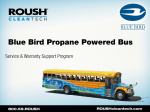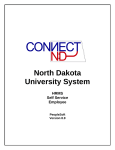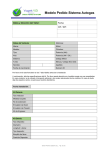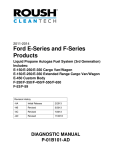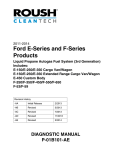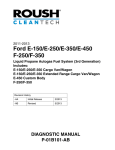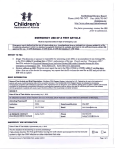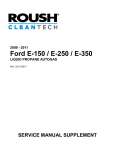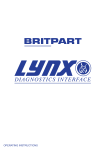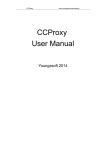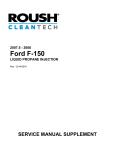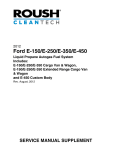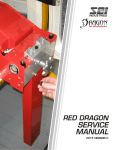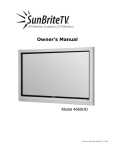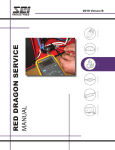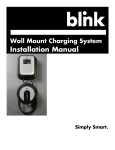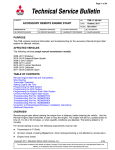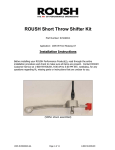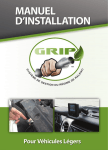Download Service Training Overview
Transcript
Propane Autogas Vehicles Service Training Agenda Introduction. ROUSH Enterprises. Propane Autogas Information. ROUSH CleanTech System Overview. Vehicle Operation. System Diagnosis. Introduction to the Service and Warranty Program. ABOUT US Company Background & History Enterprise Brand Portfolio ROUSH Industries OEM manufacturing, engineering, prototyping and design Roush Fenway Racing Dominant NASCAR Sprint Cup racing team ROUSH Performance Industry leading high performance vehicles ROUSH CleanTech Propane autogas powered commercial vehicles. Markets We Serve Transportation Defense Entertainment Motorsports • • • • • • • • • • • • • • • • • • • • • • • • • • • • • • • • • • • • • Ford Chrysler GM Toyota Honda Hyundai Isuzu Volkswagon EcoMotors VPG Navistar Blue Bird Navistar Defense BAE Systems AM General General Dynamics SAIC Textron FAAC US Army/TARDEC Oskosh Defense Hardwire Astradyne • • • • Disney Universal Studios Disneyland Paris Universal Studios Orlando Hong Kong Disneyland Disney California Adventure Universal Studios Singapore The Henry Ford Ford 3M Aflac Crown Royal UPS Scotts Kellogg Valvoline Coca-cola Fastenal Alt. Fuel Experience Compressed Natural Gas (CNG) – – – – Design of fuel system. Calibration. EPA and CARB certification. Vehicle integration. Electric – Over 16,000 recharging stations built. – Blink ECOtality contract with U.S. DOE. Hydrogen – – – – – 207.297 MPH (world land-speed record.) Vehicle design. Aerodynamics development. Vehicle fabrication. Propulsion system integration. Focus on Propane Autogas Technology advancements allow equal performance and range. Fleets see a positive ROI while reducing emissions. Susan ROUSH Propane Powered Mustang ROUSH Enterprises Brand Portfolio ROUSH CleanTech • Dedicated to developing quality alternative fuel solutions. • Propane autogas focus. • EPA and CARB certification capability. • Platform customization to suit customer needs. • Reduces operating costs, carbon footprint. • OEM support through Ford and BPN dealers. • Creating opportunities for partner companies. • Using American fuel and American technology. WHAT IS PROPANE AUTOGAS? Clean. Domestic. Abundant. Safe. Propane as an Autogas High octane fuel with key properties for internal combustion engines. – 3rd most common engine fuel in the world. – 18 million vehicles worldwide. 100 year heritage with automobiles. Lower emissions than gasoline. – – – – Not a greenhouse gas. 24% reduction in Greenhouse Gas (GHG) emissions. 20% reduction in Nitrogen Oxide (NOx) emissions. 60% reduction in Carbon Monoxide (CO) emissions. Domestically produced. – 97% produced in North America. • 73% from natural gas production. – Independence from foreign oil. Infrastructure already in place. 30-40% lower cost than gasoline. Propane Molecule (C3H8) Liquid Propane Injection Liquid propane boils into a vapor at -44°F. – Propane in the fuel tank is under pressure to remain a liquid at ambient temperature. – Pressure increases as temperature rises. Liquid injection systems offer many improvements over earlier vapor systems. – Better drivability in all temperatures. – Improved start up and emissions. – Equal horsepower and torque to gasoline version. ROUSH CleanTech fuel systems use fuel pumps to maintain liquid up to the point of injection. Propane Properties LPG is considered as safe as any conventional automobile fuel. – Propane is a nontoxic, non carcinogenic, and noncorrosive fuel. It poses no harm to groundwater, surface water, or soil. Narrow flammability range. – Air/fuel must be between 2.2 and 9.6 percent propane vapor. – 940 degrees Fahrenheit ignition point (gasoline is 430 degrees). Relative low pressure (~200psi). Fuel tanks are 20 times more puncture resistant than gasoline. Vented propane will dissipate unlike gasoline / diesel. Colorless and odorless. – Ethyl mercaptan added for leak detection. Propane Safety Precautions Always keep vehicles away from heat, sparks, flames, static electricity, or other sources of ignition. Fuel lines maintain pressure after shutdown. Propane is very cold (-44°F). Always use propane-safe gloves and safety glasses when working on vehicle fuel system. Only bleed propane in a well ventilated area to prevent asphyxiation. Refueling Options Public Propane Station – Over 3,000 public stations nationally Private Infrastructure – Infrastructure available for little to no cost to you. – Lock in your fuel prices for a whole year! On-site resupply via bobtail fill-up 24 hours / 7 days a week roadside assistance Propane autogas fills at the same rate as gasoline and diesel (approximately 5-7 gallons per minute) Fueling a Propane Autogas Vehicle Automotive style filling stations fill much like a gasoline pump. Scan fueling key or credit card. Remove nozzle and thread onto fitting behind fuel door. Depress handle, propane will flow until tank reaches maximum capacity (80%). When you release handle a short burst of propane will come out of the sides of the nozzle. – Unthread nozzle and replace fill valve cap. – – – – During fueling ensure there is no source of ignition within 25 feet of the vehicle. – Safety gloves should also be worn during filling. Non-automotive style filling stations can be used. – Horsepower / pressure setting of pump can effect filling. – Filling time may increase in higher temperatures. SYSTEM OVERVIEW Propane Autogas Generation Improvements Gen 1 – – – – – F-Series trucks 2007.5-2010MY. Two propane autogas filters in the fuel tank. Flow Control Solenoid to control fuel pressure. Single fuel pump in tank. Electronic 80% optical sensor and fill system. Gen 2 – Launched on E-Series. – Two propane autogas filters in the fuel tank. – Fuel Rail Pressure Control Module (FRPCM) with 4 control solenoids for improved starting and emissions. – Mechanical fill circuit for fuel fill improvements. Gen 3 – Uses two fuel pumps. – Four propane autogas filters in the fuel tank. – Changes to the mechanical fill circuit to improve fueling time (increases from 6 gallons / minute to 8 gallons / minute). – Updated FRPCM with 3 control solenoids and check valves for return fuel circuit. Ford E-450 Fuel Tank FRPCM The liquid propane autogas fuel tank meets all ASME certification standards, is made of ¼ inch thick steel, and is built and assembled in the USA. The Fuel Rail Pressure Control Module ensures consistent vehicle performance and power on-demand. Fuel Rail ROUSH CleanTech’s signature blue anodized aluminum fuel rail is designed to operate under varying temperatures of liquid propane Fuel Fill Industry-standard valve designed to allow for safe passage of liquid propane into the vehicle. Includes a check valve to prevent fuel leaks. Fuel Injectors Special fuel injectors are used to inject liquid propane into the cylinders for ignition. Fuel Lines Made of high-durability stainless steel to handle varying temperatures and pressures. They are designed to route through the factory line locations. Special Tools Scan Tool (for pulling DTC faults and running basic diagnostic tests). – We recommend the following scan tools from Ford Rotunda SPX for reading Ford and ROUSH CleanTech DTC codes (P Codes) and running basic testing and diagnostics on the Ford engine, Ford transmission and ROUSH CleanTech Propane Autogas Fuel System. • VCM Kit Website (rotunda.spx.com). – Recommended: VCM II kit w/ CFR Pendant -Product ID: 164R9807. • Software Licensing. – http://www.motorcraftservice.com – A generic scan tool can also be used for most fuel system diagnostics. • Recommended: Elite Actron Auto Scanner Pro CP9185. Jiffy-Tite quick connect tools- 3/8” and ¼” sizes. – http://alleganytoolco.com • Call for ¼” size: 716-785-1510. Special Tools Fuel pressure gauge 0-500 PSI and hose to adapt to -4 fitting (same as R-12 A/C fitting). – There are many aftermarket fuel pressure tools available. An A/C gauge set is the best option as it is compatible with propane, and most service centers will already have this tool in their possession. – An R-12 A/C gauge set can be purchased from a local tool supplier. Mechanical Fuel Pressure adaptor. – Connects to fuel rail to allow a manual gauge reading. – Now available through ROUSH CleanTech. Gen 2 Fuel Tank Fuel Fill Valve – Fill Line Fuel Fill Filter – Fuel Pump Filter – In-Tank Filter Bleeder Valve – Also called liquid level gauge Multivalve 80% Fill (OPD) – Electronic pre Nov 2011 – Mechanical post Nov 2011 – – – – Fuel Pump – – Sending Unit – Excess Flow Check Valve – Fuel Supply Electronic Fill Valve Fuel Return Manual Shutoff Wiring Pass-Through Overpressure Relief Gen 3 Fuel Tank Fuel Fill Valve – Fill Line Sending Unit – FLIM (Fuel Level Indicator Module) converts resistance value to OEM fuel level indication voltage Mechanical Fill Valve – Overfill Prevention Device Overpressure Relief – Vents pressure over 312 PSI Fuel Supply/ Return – Manual Shutoff Valve – Bleeder Valve (liquid level gauge) – Excess Flow Check Valve Wire Pass Through – Allows access to fuel pumps Fuel Filters • Fuel Fill Filter. – – – – – Prevents contamination during fueling. Located on tank or frame rail. Only maintenance item. Replace every 50,000 miles. Flow direction labeled. • Fuel Pump Sock Filter. – Connected to the fuel pumps. – In tank. • Pre-injector Filter. – Inline filter after the fuel pumps – In tank. Mechanical Fill Valve Tank Fill Valve / 80% Overfill Prevention Device (OPD): – Located where fuel enters into the fuel tank, the fill valve is opened mechanically by the refueling pump pressure during the fill process. – It also incorporates a back flow check valve and an overfilling prevention device. – The back flow check valve closes when vehicle tank pressure is greater than pressure outside of the tank to prevent fuel from escaping. Fuel Level Sender The fuel level sender consists of an in-tank float arm coupled to an externally mounted variable resistor. Sender provides a fuel level signal to the instrument panel via the Gateway Module (SRM), which utilizes an “anti-slosh” signal conditioner to provide a constant gauge reading. Fuel level sender is serviceable from the top of the tank and includes a visual indicator which can be referenced during service. Gen 3 Dual Fuel Pumps Fuel pumps – The LPG fuel system utilizes two 12-volt in-tank fuel pumps. – The fuel pump assembly is mounted to brackets located in the bottom of the fuel tank. – The pumps and filters are serviceable through the service port opening on the bottom of the fuel tank. – The in-tank pumps receive a 12-volt supply when the ignition key is switched on and runs a purge cycle for up to 30 seconds. – Each pump is controlled by an Electronic Fuel Pump Relay (EFPR), which are controlled by the PCM. – The pump is provided with a constant ground signal. – During operation the pump voltage will vary from 7 – 13.5V. Fuel Tank Supply Solenoid Assembly Consists of: – Excess flow valve. – Fuel system supply solenoid (automatic shut off valve). – Manual shutoff valve. Fuel tank supply solenoid is controlled by the PCM and is activated whenever power is supplied to the fuel pumps. Service of this component requires tank evacuation. Manual Shutoff Valve Located on the tank. Will manually stop the flow of propane. Close Manual Shutoff when servicing propane autogas fuel system components or to stop a leak that continues after key is off. Fuel Rails FRPCM – (Fuel Rail Pressure Control Module) Fuel Rails – – Gen 3 shown (Blue) Gen 2 and 2.5 (black) IPTS – Injectors – Jumper Wires Fuel Rail- Cross Over - Return (Integrated Pressure Temperature Sensor) Fuel Lines – – – Supply Return Bleed Gen 2 FRPCM • Fuel Rail Pressure Control Module – Four Solenoids (Gen 2) – Supply: – Supplies fuel to rails. – Return: – Allows fuel to circulate back to tank. – Flow Control: – Metered Orifice to control pressure . – Bleed: – Goes to EVAP canister. Gen 3 FRPCM • Fuel Rail Pressure Control Module – Three Solenoids (Gen 3) – Supply: – Supplies fuel to rails. – Flow Control: – Metered Orifice to control pressure. – Bleed: – Goes to EVAP canister. – Return Check Valve Evaporative Emissions Canister Vapor Canister Assembly – A vapor canister is being utilized to vent the fuel vapors remaining in the fuel rail during engine shut-off to eliminate the chance of propane leaking past the fuel injectors. – This also improves vehicle emissions and overall starting performance. Vapor Lines – The fuel vapor hoses are flexible and quick connect fittings, which can be easily disconnected by pinching the connector release points. PCM Control System Strategy & Calibration The PCM calibration consists of a modified version of the OEM strategy and a LPG specific calibration. Control System Strategy: – The ROUSH CleanTech LPG strategy is built off of the OEM strategy with the addition of new logic to drive and monitor the flow control solenoid and / or FRPCM. – Because the strategy is based off of the OEM strategy, the OEM PCM retains all fuel control and diagnostic functions. – LPG specific DTCs added. – The LPG DTCs are stored in the PCM memory and are cleared via the OEM strategy’s fault state controller. Smart Relay Module (SRM) LPG Interface Function: – The SRM controls the following functions within the LPG fuel system: • Fuel rail pressure control module solenoids. • Fuel tank supply solenoid. – The SRM supplies the following information to the Ford engine controller: • • • • Fuel rail pressure. Fuel rail temperature. Second fuel pump relay module fault status. Fuel level. IMPORTANT OPERATION POINTS Propane Autogas Fuel System Start Sequence One Touch Integrated Starting (OTIS): Turn key to start. Immediately release key. – Solenoids will open and fuel pump will cycle propane through the lines. – Once liquid propane is detected at the rails, engine will crank. • 2 – 30 seconds. Do not hold key in start position or cycle back to off. First Responder: Leak Procedure If a fuel leak occurs due to vehicle damage: Eliminate any potential source of ignition. Turn the vehicle OFF and remove the key from the ignition. – Leak will often stop once vehicle is off. – If leak continues, manual shut off valve can be closed. – Once leak stops, vehicle can safely be towed. If you continue to see, hear or smell the leak. (Do NOT use bare hands to check for leaks). – Call appropriate emergency personnel first. – Call ROUSH CleanTech at 800.59.ROUSH (800.597.6874). • If calling after normal phone hours and if liquid propane autogas is still leaking, follow the automated phone instructions for emergency reporting. – Service will then be arranged. TROUBLESHOOTING AND DIAGNOSTICS OVERVIEW Website ROUSHcleantech.com/service • • • • • • • Service and Warranty Program Manual. Service and Diagnostic Manuals (Propane System). Training Registration Form. Limited Warranty and Policy Manual. Warranty Claim Process and Form. Standard Labor Times. Technical Support Videos. Troubleshooting and Diagnostics Please make sure to review the service and diagnostic manual for proper procedures based on symptom and fault codes (DTC’s) received. Always refer to the online diagnostic manual for the latest version. The most up-to-date service and diagnostic manual for the propane system will be available on ROUSHcleantech.com/service Diagnostic Flow Charts in Service Manual – – – – – – – – No fill. Slow fill. Over fill. Engine does not crank. Engine cranks, not start. Engine stumble, stall, rough idle. Fuel system fails to bleed. Fuel system pressure drop. Depressurizing Fuel System For Repairs 1. Disable 12V power to the fuel pumps by removing the fuel pump fuse from the fuse panel on the vehicle. 2. Fully close the manual shut-off on the tank supply valve. 3. Start the vehicle and let it run until it stalls, this will remove the majority of the liquid from the fuel lines. (Delay period during this start will be extended due to fuel pumps not running and rail pressure not building) 4. Perform this starting procedure 3-5 times to ensure liquid is removed from lines. 5. Locate the fuel line union on the return line near the fuel tank and slowly crack it loose to relieve the lines of the remaining vapor pressure. 6. Perform the necessary fuel system repairs. Common Diagnostics Procedures Reading fuel pressures. – Verifies correct fuel pump function. – Checks for restrictions. Fuel tank pressure. – Connect 500 psi gauge to -4 fitting on tank bleeder valve. – Open bleeder and read pressure. Fuel rail pressure. – Read from IPTS signal. • Connect with Ford IDS or compatible scan tool. • Use the ROUSH service tool to connect inline with the fuel rail. – Connect -4 gauge. – Fuel rail pressure should read >35 psi over tank pressure at idle. Fuel System Specific DTC’s PCode Description Component Symptom Action P009E Fuel Pressure Relief Control Performance Stuck Off Fuel Rail Pressure Control ModuleBleed Solenoid Hard Start/Extended Crank Check that the FRPCM is performing the bleed procedure. P0148 Fuel Delivery Error General Fuel System Vehicle hesitation or stall. Go to the Crank, No Start section of the service manual. P116E Maximum Pressure General Fuel System Stall, rough idle, misfire Perform the fuel pressure checks per the service manual. P0005 Fuel Shutoff Valve A Control Circuit Open Tank Supply Solenoid Vehicle will not start/no pressure build in fuel rail. Perform the Tank Solenoid Electrical Check per service Manual. P26B5 Fuel Shutoff B Function Check Fuel Rail Pressure Control ModuleSupply Solenoid Vehicle does not start, no pressure build in rail. Go to the Crank, No Start section of the service manual. U0108 Lost Communication with Alternative Fuel Control Module. Smart Relay Module (Gateway Module) Rough Idle/Performance Issues Perform the SRM Electrical Check per the service manual. PID Information Acronym Description FP Fuel pump FPM Fuel pump monitor FUEL_SHUT_A Fuel Shutoff Valve A Tank Is Commanded Open To Allow Fuel Flow FUEL_SHUT_B Fuel Shutoff Valve B Supply Is Commanded Open To Allow Fuel Flow FUEL_PRS_REG Fuel Pressure Regulator Flow Control Solenoid Is Commanded Open, Allowing Fuel Flow To Bypass The Regulator FUEL_PRS_RLF Fuel Pressure Relief Solenoid Is Commanded Open, Allowing Post Shut Down Remnant Fuel To Flow To The EVAP Canister FRP Fuel Rail Pressure FRT Fuel Rail Temperature FLI Fuel Level SERVICE AND WARRANTY PROGRAM Training, Basic Coverage and Special Tools Service and Warranty Program The ROUSH CleanTech Service Program consists of multiple components to assist Dealers and Service Centers in supporting fleet customers: – – – – – – Service Center Agreement (Basic Requirements). Interactive Web-Based Training Program. Service and Diagnostic Manuals. Technical Information Videos. Technical Phone Support. Warranty Claims Resolution Process. Authorized Service Centers ROUSH CleanTech service network is expanded as needed for vehicles in service. Please see the Dealer Locator at ROUSHcleantech.com for an interactive map of current Authorized Service Centers. Web Based Training Program This program offers two focused courses: Service Technician Course A. Propane as an Autogas B. Propane Autogas Fuel System Overview C. System Diagnostics D. Basic Warranty Information Service Manager/Advisor Course A. Propane as an Autogas B. Propane Autogas Fuel System Overview C. Detailed Warranty Process Limited Warranty Summary Contact ROUSH CleanTech for all warranty claims. Description of Coverage: – Vehicles powered by the ROUSH CleanTech Propane Autogas System are covered by a Roush limited warranty and warranties conforming to both Federal Environmental Protection Agency and California Air Resources Board (CARB) regulations. – ROUSH CleanTech matches the terms of the factory Ford warranty, 5 years or 60,000 miles. – Please see the Product Owners Guide or the Warranty and Policy Manual for more information. – Components not part of the ROUSH CleanTech fuel system are covered under normal Ford warranty. Warranty Process Flow Online service cloud provides easy access to warranty resolution and support. Vehicle information and concern is entered into a case. Claim status is available 24/7. Tutorial video is sent with login information. Warranty Process Flow Case comments are an open conversation with a field service technician. DTCs can be entered and descriptions are shown. Labor operations can be searched and entered. Replacement parts will by added by the field service technician. CONTACT US: 800.59.ROUSH (Option 2) [email protected] Technical Hotline Warranty Fax Line 734.779.7777 734.779.7700





















































